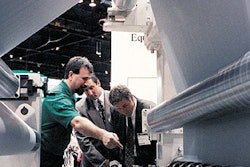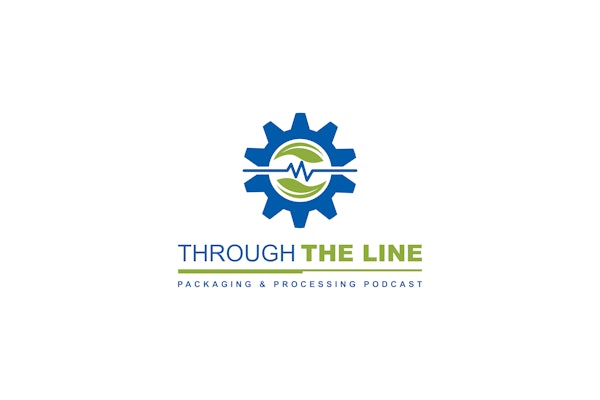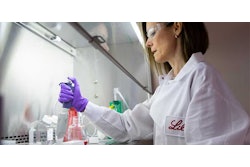During a life-and-death episode in which a soldier had just lost an arm in a roadside explosion, packaging wasn't uppermost in the mind of United States Army Sergeant Joseph Cordova, who served as a medic in Baghdad, Iraq in 2003. Nevertheless, he appreciated the pouch containing Z-Medica's QuikClot blood-clotting powder.
"It has a tear notch that makes it easy to open, even though it is wicked tough'," he says. That toughness comes from a nearly 5-mil thick adhesive lamination of polyester reverse-printed in four colors/adhesive/foil/adhesive/nylon/adhesive/oriented polypropylene. The structure is according to Bob Packard in product development at Z-Medica, a Wallingford, CT-based medical products firm specializing in hemostatic products. Packard prefers not to identify the supplier(s) of the structure.
Cordova was surprised that such a tough pouch structure could be so easy to open compared with his experiences with the pouches used for military rations called Meals-Ready-to-Eat, or MREs. "We use MREs that are wicked tough pouches, but they're also wicked tough to open," Cordova says. "They have a tear notch and a little area at the top to help open them, but they're sometimes so tough to open that we call our knives MRE stilettos."
Cordova says that carrying two packages of the QuikClot products was so light, "I didn't even feel they were there."
Another benefit: "The usage instructions on the pouch are very clear and easy to read," he comments. "And they withstood the heat in Iraq."
The heat was on that June day in 2003 when the convoy Cordova was in was driving out of downtown Baghdad, headed toward "Victory Base," about two miles away near the Baghdad International Airport. The special morning mission's goal was to help secure an area so that engineers could go in and restore utilities and water service as part of "Operation Neighborhood."
At the same time, another convoy was traveling in the opposite direction on the other side of the highway. "They were under attack," recalls Cordova, who joined the Army in 1992. "One of the personnel carriers in that convoy ran over an Improvised Explosive Device. The vehicle turned over during the explosion. We pulled up to it and noticed one person was KIA (Killed in Action), and another soldier had a traumatic shoulder injury."
By then, Cordova explains, a "combat life saver" from the other convoy "was holding a piece of gauze over the wound, but the blood was just pouring out of the injured man," who Cordova says was unconscious, his right arm blown off at the shoulder.
Not long before he was deployed to Iraq, Cordova had learned about QuikClot. "I noticed it during our training, and saw another medic with it in his vest. I commented on it and he gave me a pack that had two of the QuikClot packs, dressing, and gauze. We had heard that the Special Forces and a lot of infantry units had it."
Somewhere, there's a soldier who can thank Cordova and QuikClot for helping to save his life that June day in Baghdad. When Cordova reached the injured soldier, he says, "It dawned on me that I had this powder, so I tore open the pouch and poured it in, put gauze on it, applied pressure, and the bleeding stopped immediately. They called in a helicopter and rushed him to a combat support hospital (or CASH) in Baghdad."
Although Cordova was not able to follow up on the condition of the injured soldier he estimated to be in his 20s, the medic says that without the pouch of QuikClot, "he would have died right there. He was bleeding out and barely had a pulse in his carotid artery." Cordova also started him with an IV and says his vital signs improved before he was evacuated from the field of battle.
Today, Cordova is a paramedic with the Fruita, CO, Fire Dept. "I've been singing the praises of the QuikClot pouch and we're in the process of implementing it, both with our Fire and Police Departments." In a life-and-death combat situation, Cordova says the pouched product "was fabulous."



















